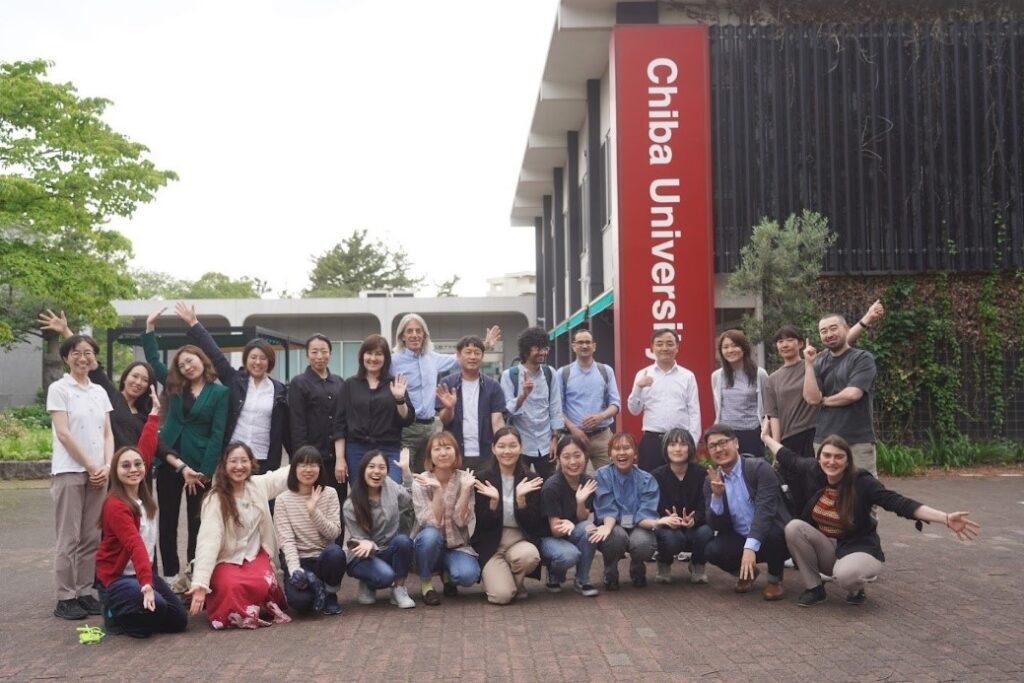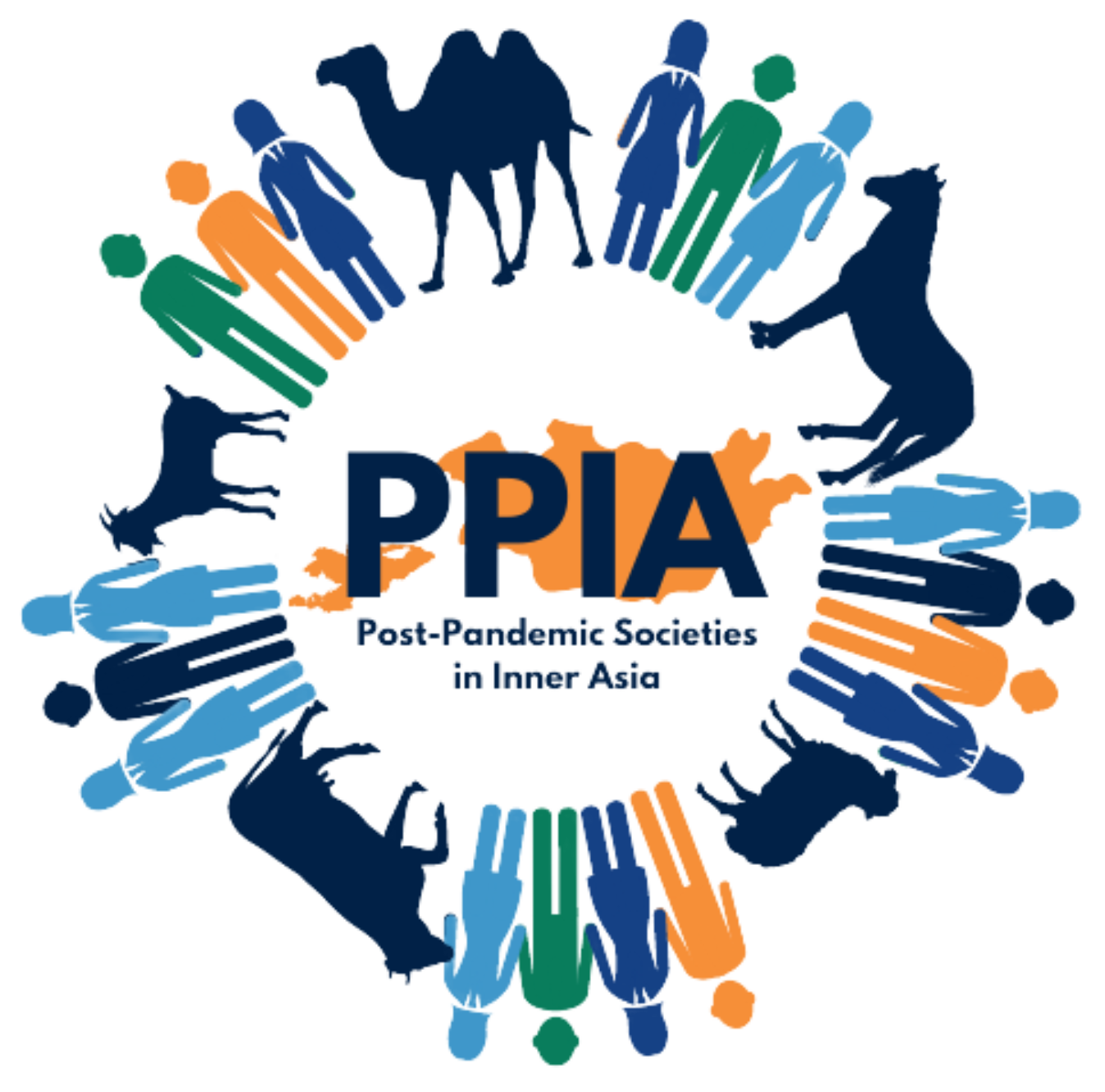
For three days from 20 to 22 May, we held the PPIA Spring School at Chiba University to encourage young researchers to improve their English writing skills. This workshop, which was held for the third time after Ulaanbaatar in 2021 and Bishkek in 2022, was organized by PPIA. Chiba University Graduate School of Humanities and Studies on Public Affair and Doctoral Program for World-leading Innovative & Smart Education (WISE), and co-sponsored by the National Institute of Humanities, the Global Area Studies Program and the East Eurasian Studies Project (GASP-EES). First, I would like to express my sincere gratitude to Professor Kanako Kodama for hosting us at Chiba University.
The Spring School was held at the Academic Link Center of Chiba University, located in the centre of the Chiba University campus, which is a mixture of cherry blossom and acorn forests and grassy squares. The study room, attached to the central library, welcomed the participants in a quiet, bright and open atmosphere. There were 22 Masters and PhD students, postdoctoral fellows and early career researchers from various universities across the country, mainly from Chiba University and GASP-EES base schools. Many participants came not only from universities in the suburbs of Tokyo, such as Chiba University and the University of Tokyo, but also from universities in large cities in western Japan, such as Kobe University and Kyoto University, and there was also a friend who came alone from Toyama. The composition of the participants who came from different places was very international.
The programme was structured as follows:
[Day 1] Monday 20 May
Session 1: Ice breaking and a map of an academic paper
On this day we had a break for the participants to relax. Ariel introduced us to a very British game called the Coat of Arms Game and we quickly noticed that the participants were very active and engaged. After getting to know each other, Ariel and Troy took us through the guidelines of what an academic paper should look like and what strategies and qualities we should be aware of when writing a paper.
[Day 2] Tuesday 21 May
Session 2: The relationship between collaboration and career
The morning of the second day was led by Taka. We had a presentation and discussion about what it means to write in English and how to collaborate internationally. After the keynote speeches by Ozaki and Ariell, Kemel, Zalina, Buho and Akira talked about the importance and challenges of working internationally from their respective perspectives. There are many barriers to collaboration. Time differences, different academic calendars and limited physical meeting times. Differences in discipline and native language can create communication gaps and make it difficult to move the project forward. “Familiarity makes things a little easier”, “Work with friends who share interests, goals and love”, “Be visible and recognized”. Some advices of the speakers, who have experience in international cooperation, will have left a lasting impression on the participants. Undergraduate students from Chiba University attended this session and was a great success. Returning to the challenge of academic writing, we shared the various challenges of writing (in English) among the participants.

Session 3: Building and developing academic skills
In session 3 of the afternoon, Ariell and Troy gave a presentation on how to write a good paper. It has a clear research question, is positioned as the optimal previous research, has analysed the data, and has the optimal format and content for the journal. In addition, Troy and Ariel provided more specific options and criteria for what authors should choose to write such papers, as well as tools that are effectively used in the UK.

[Day 3] Wednesday 22 May
Session 4: Creating titles and abstracts
This day consisted of a morning exercise using titles and abstracts prepared in advance by the participants, which would serve as the seed for future papers. The essential element of the title and abstract is to attract people and make them want to read it, but the content of the paper must be correctly abstracted. Participants exchanged ideas within their groups and improved their own titles and abstracts.

Session 5: Networking and presentations
The afternoon of the final day was facilitated by Chieko. What took place here was a lecture and discussion on how to build a more effective career. Ariel suggested the importance of effective presentations, meeting people, asking questions, and exchanging ideas in a more informal and relaxed atmosphere. Kemmer introduced new ways to network easily, including how to use AI to build a CV. Chieko then introduced her blogging initiative, which caught the attention of many participants. Participants may have gained the courage to promote their research and presence in different ways. The three-day session ended with a shared sense of security and positivity that they could trust that there was a favorable audience.
The three days were a great encouragement not only for the participants but also for myself regarding writing and communication. As Ariel emphasized the importance of networking, the PPIA Spring School was also a great workshop as a networking opportunity for young researchers. Newly met colleagues may become partners who support each other in future research activities. They may meet again somewhere and new collaborations may emerge. Even if not, we hope that gathering in Chiba from various universities to share our writing and research concerns and challenges will support our future research activities.
Thank you to all participants and PPIA members!


No responses yet